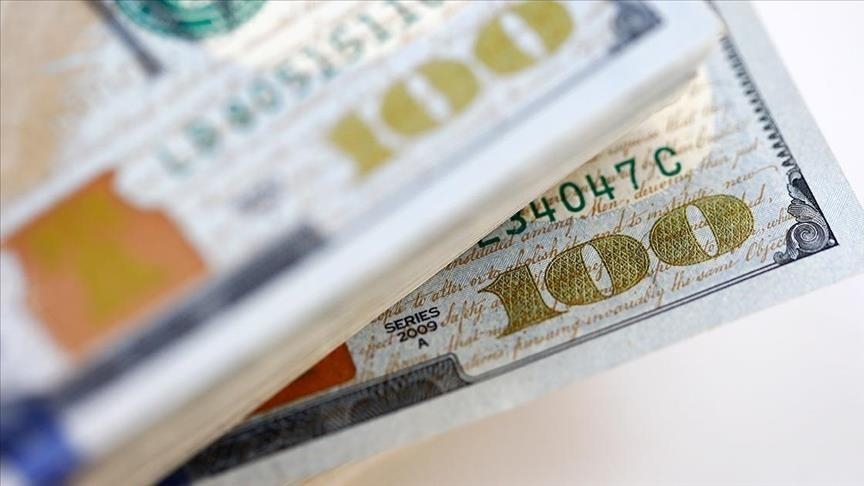US dollar’s share of global foreign exchange reserves falls below 59%: IMF
‘Central banks not holding greenback in their reserves to extent that they once did,’ IMF blog says

ANKARA
The dollar’s share of global foreign exchange reserves diminished below 59% in the final quarter of last year, extending a two-decade decline, according to the latest IMF data.
"Central banks aren’t holding the greenback in their reserves to the extent that they once did," the global body said in a blog based on the IMF’s Currency Composition of Official Foreign Exchange Reserves data.
Yet the use of the dollar in global trade, international debt and non-bank borrowing still surpasses the share of the US in trade, bond issuance, international borrowing and lending, it said.
Giving an example of Israel, the IMF said: "The Bank of Israel recently unveiled a new strategy for its more than $200 billion of reserves. Beginning this year, it will reduce the share of US dollars and increase the portfolio’s allocations to the Australian dollar, Canadian dollar, Chinese renminbi and Japanese yen.”
The declining role of the US dollar has not been matched by the increases in the shares of other traditional reserve currencies such as the euro, yen and pound, the blog noted.
"Moreover, while there has been some increase in the share of reserves held in renminbi, this accounts for just one quarter of the shift away from dollars in recent years, partly due to China’s relatively closed capital account," it said.
The research also indicated that as of the end of last year, "a single country—Russia—held nearly a third of the world’s renminbi reserves."
“By contrast, the currencies of smaller economies that have not traditionally figured prominently in reserve portfolios, such as the Australian and Canadian dollars, Swedish krona and South Korean won, account for three quarters of the shift from dollars,” the blog said.
According to the financial institution, there are two major factors behind this move.
The first one is that "these currencies combine higher returns with relatively lower volatility, appealing increasingly to central bank reserve managers as foreign exchange stockpiles grow, raising the stakes for portfolio allocation."
New financial technologies are also said to be making the currencies of smaller economies cheaper and easier to trade, the blog added.
Anadolu Agency website contains only a portion of the news stories offered to subscribers in the AA News Broadcasting System (HAS), and in summarized form. Please contact us for subscription options.

